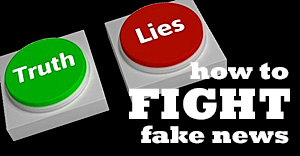


Fighting Misinformation: How to Inoculate Your Audience Against Troll Trash Talk
By Howard Fencl/Hennes Communications
- Fact: The COVID-19 vaccine will make you glow in the dark.
- Fact: Migrants crossing the southern border are causing the latest U.S. outbreak.
- Fact: Dr. Anthony Fauci is covering up U.S. support of research that unleashed COVID.
Fact is, none of these allegations are fact. They’re nonsense. And none of this nonsense is new. But when you see these lies continuing to circulate nearly two years into the pandemic, reasonable people have to wonder how any otherwise reasonable person could ever believe these unsubstantiated assertions.
Misinformation is called the world’s second pandemic. The World Health Organization (WHO) gave it a cheeky name – “infodemic.” By any name, it’s driven by fearmongering, (It’ll make you glow in the dark!”) scapegoating, (“Illegal immigrants are to blame!”) discrediting, (“Fauci is covering up!”) and trolling (all of the above!).
All the well-intended, albeit reactive, attempts by the science community to bat down misinformation may simply be too late: Social psychologists say you need to be inoculated against misinformation as soon as an issue arises – before trolls can spread their poison. If you’re late to the game, people who buy into troll talk will have already made up their minds and you’ll never win, even with the facts on your side.
That’s an important Issues Management* point for you and your company: As you see hot-button issues arise, inoculate skeptical audiences against misinformation you anticipate. There are always rumors and untruths circulating around contentious labor issues, unpopular new policies, leadership changes, mergers and acquisitions – the list is endless.
So how do you do it?
With a vaccine, you get a little piece of the offending virus to help your body fight back future infection. When you go to the mat fighting misinformation, you do the same thing: Inoculate your audiences by giving them a head’s up on the manipulative techniques you expect trolls will use. This “pre-bunking” (an awkward, hideous term concocted as the opposite to “debunking,” but widely used nonetheless) activates psychological defenses so people are prepared to recognize and refute bogus information about your issue when they see it.
Educate your audiences on the issue at hand, but tell them they can expect to see trolls try to polarize and manipulate them by playing on emotion and fears. When you inoculate audiences by calling out common misinformation techniques, you build psychological resilience that enables people to see through false claims circulated on social media, anonymous letters to your board, leaks to the media and the like. Other key misinformation tactics to prepare your audiences for:
- Fake experts
- Conspiracy theorists
- Discrediting experts
- Scapegoating
- Personal attacks
- False dichotomy (Creating a false dilemma hoping to force people to make an emotional choice, e.g. “If you’re not with us, you’re our enemy”)
Of course, when misinformation on your issue eventually begins to appear, you’ll still want to counterattack with the facts. But the pressure to win the hearts and minds of disbelievers blindly buying into troll talk will be greatly lessened if you steel your audiences to these manipulation techniques so they can recognize and reject misinformation when they see it. Finally, just like any vaccine, remember that audiences need an occasional booster inoculation to keep their psychological defenses sharpened against future misinformation attacks.**
*Anticipating hot-button scenarios and executing a strategy to mitigate misinformation campaigns falls in the realm of Issues Management – a previously not-very-sexy public relations practice that should now be top-of-mind for everyone, given the rise and proliferation of fake news.
**Want to inoculate yourself against misinformation? Try GO VIRAL! And CRANKY UNCLE, simulations designed to build resilience against misinformation.